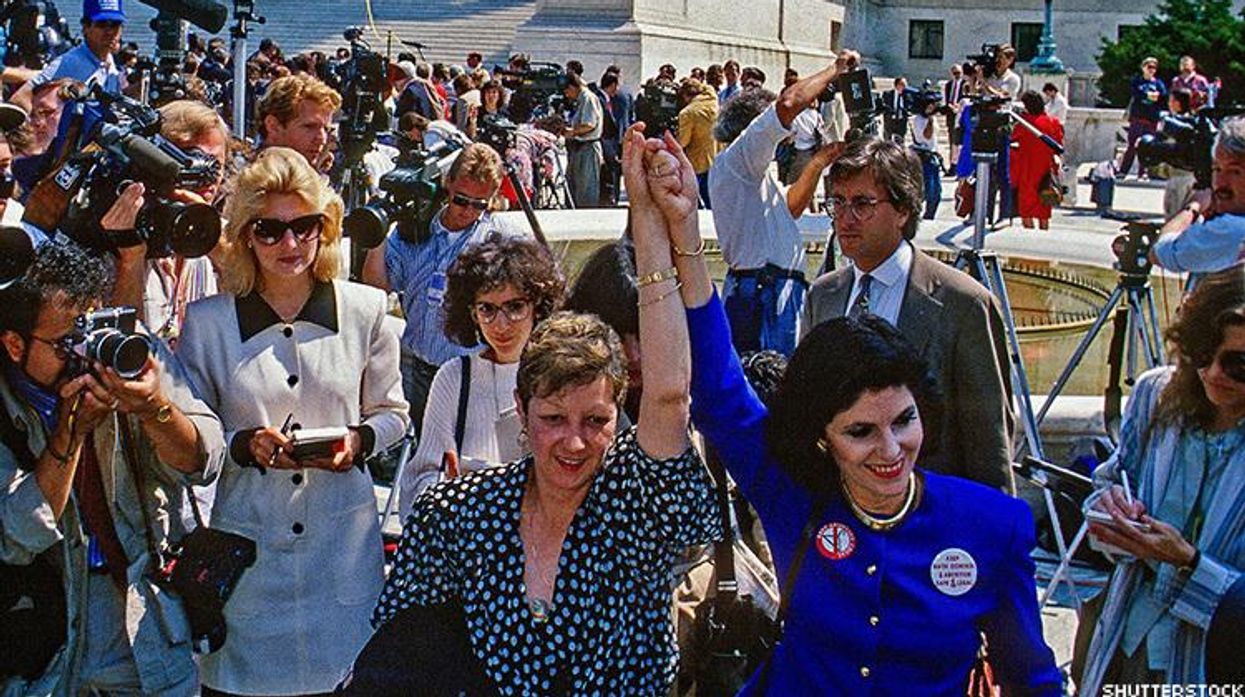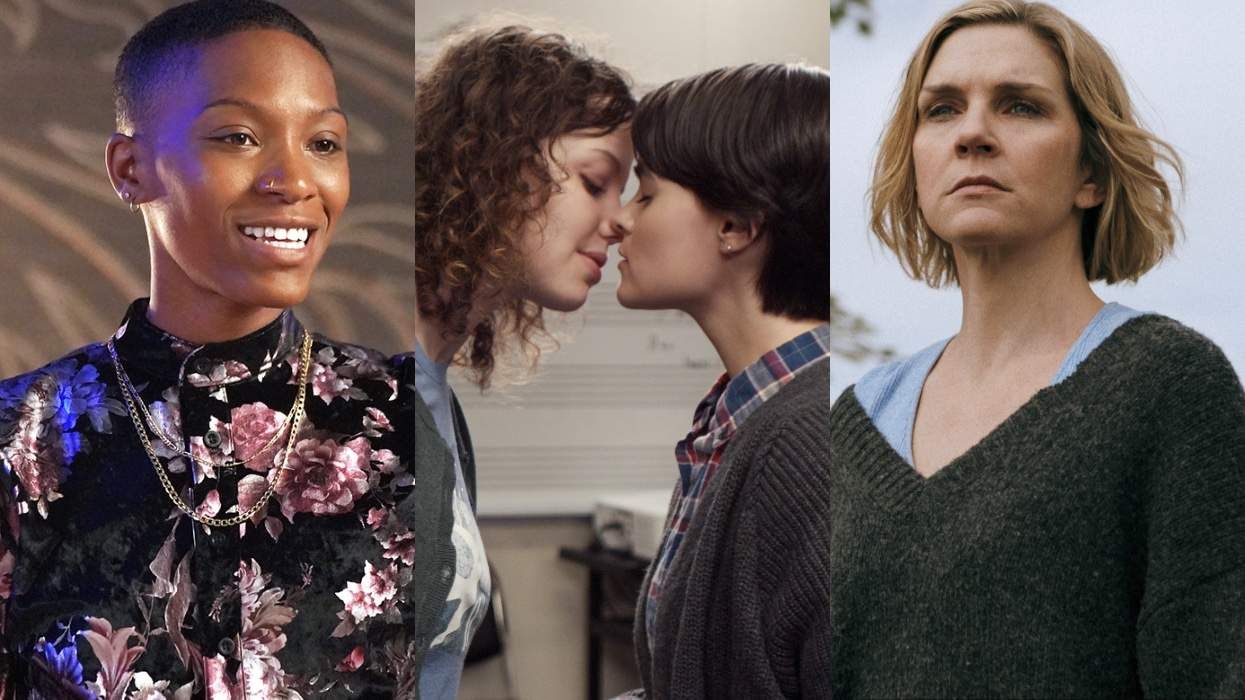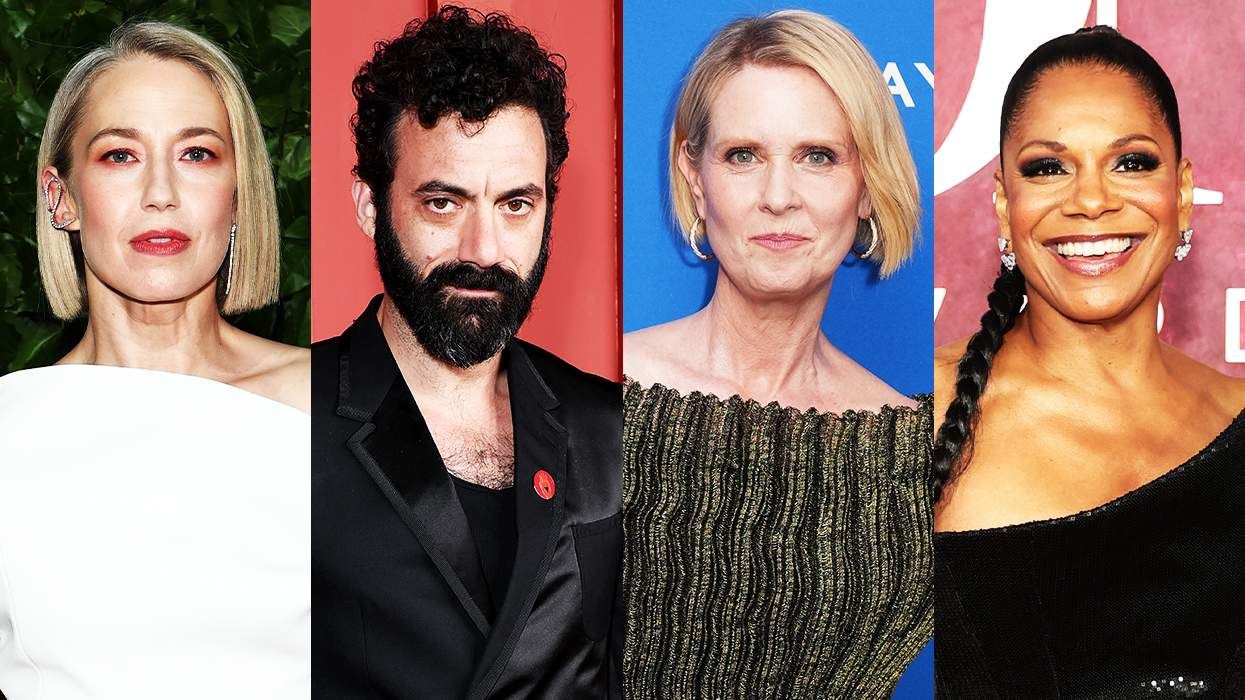Norma McCorvey, the woman at the center of Roe v. Wade, the case that legalized abortion throughout the U.S., said toward the end of her life that she eventually switched sides and joined the anti-abortion movement only for money.
McCorvey, who identified as a lesbian but had relationships with men as well as women, made the statement in the new documentary AKA Jane Roe, which will premiere Friday on FX, the Los Angeles Times reports.
McCorvey was unmarried, impoverished, and pregnant with her third child in 1970, when she decided to challenge the law in her home state of Texas that banned abortion except to save a woman's life. She used the pseudonym Jane Roe in the case. She ended up not ever having the abortion, as it took until 1973 for the U.S. Supreme Court to rule for the right to abortion nationwide, striking down Texas's law and other states' bans on the procedure.
It was seen as a coup for the anti-abortion movement when McCorvey came out against abortion in the 1990s. She became an evangelical Christian and began working with Operation Rescue, a militant group known for blockading reproductive health clinics and harassing the clinics' clients. She later renounced Operation Rescue's tactics, converted to Catholicism through Priests for Life founder Frank Pavone, and started her own anti-abortion organization.
In AKA Jane Roe, however, filmed in the months before McCorvey's death in early 2017, she said her anti-choice activism was all financially motivated and that she received payment from Operation Rescue and other groups. "I was the big fish," she said, according to a Times preview of the documentary. "I think it was a mutual thing. I took their money, and they'd put me out in front of the cameras and tell me what to say. That's what I'd say. It was all an act. I did it well too. I am a good actress."
"If a young woman wants to have an abortion, that's no skin off my ass," she added. "That's why they call it choice."
Rob Schenck, an evangelical minister and former Operation Rescue leader, who has distanced himself from the group, offered support for McCorvey's assertions. The organization was paying her because of the fear "that she would go back to the other side," he said in the film. "There were times I wondered: Is she playing us? And what I didn't have the guts to say was, because I know damn well we were playing her. ... What we did with Norma was highly unethical."
The documentary also shows McCorvey on election night 2016, expressing support for pro-choice Democratic presidential nominee Hillary Clinton. "I wish I knew how many abortions Donald Trump was responsible for," McCorvey said of the Republican nominee and eventual victor, who has catered to anti-choice forces. "I'm sure he's lost count, if he can count that high."
McCorvey was in a relationship with Connie Gonzalez (some publications have spelled her name Gonzales) for decades. With McCorvey's embrace of conservative religious values, she said she was no longer a lesbian. The two women remained close, however, although McCorvey said they had become platonic friends instead of romantic partners. They continued to live together, and a 2006 Washington Times article noted that McCorvey was caring for Gonzalez, who was recovering from a stroke.
Director Nick Sweeney told the Times he found McCorvey a compelling subject. "I thought she was extremely interesting and enigmatic," he said. "I liked that her life was full of these fascinating contradictions."
Sweeney's work has often focused on social issues. His credits include Born in the Wrong Body, a 2015 British docuseries about transgender children in the U.K.















